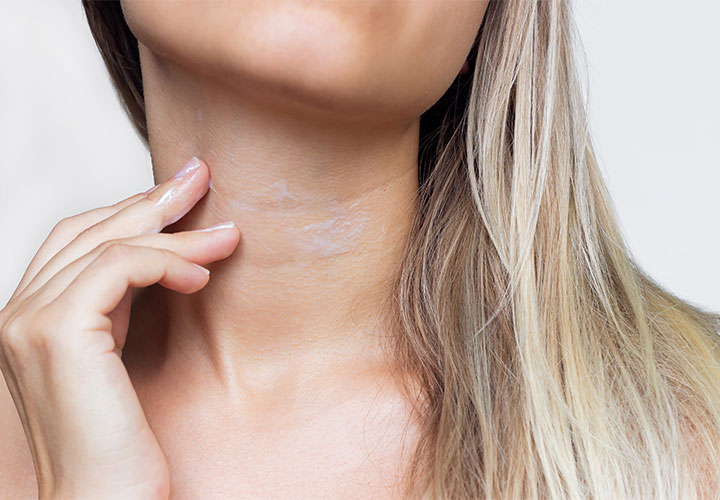The One Neck Cream Every Woman Should Be Using To Fight Dry Weather–It Prevents Wrinkles!
February 18, 2023 by Lisa Cupido
With so much attention put on the face — keeping the under-eye area moisturized, blotting the T-zone, etc. — you can’t be blamed for forgetting that the neck, too, craves your undivided skincare attention and a piece of the pie when it comes to your routine. Perhaps you’re already hip to the needs of your neck and show it some love by dragging a bit of your moisturizer, serum, and sunscreen down when you’re applying it to your face. That’s a start.
But many skin experts say the delicate skin on your neck, which can show signs of aging earlier than other places, needs its own routine, complete with its own neck creams that are formulated specifically for this area. If you’ve always raised an eyebrow at the sound of “neck cream” and aren’t convinced, these experts explain why neck cream is important for fighting dry weather and preventing wrinkles — and which one they recommend.
How Are Neck Creams Different?First, let’s get the why’s out of the way and appeal to our curiosity: why are neck creams even needed? Aren’t regular facial moisturizers enough to get the job done?
“The skin on your neck and décolleté is different from the skin on your face as it is thinner and has less collagen and oil glands so they do require the same amount, if not extra, care as the face,” explains Dr. Arash Akhavan, MD, FAAD, owner of The Dermatology and Laser Group in Manhattan, NY. “Neck creams are similar to facial moisturizers – the only difference is that neck creams tend to have a slightly thicker consistency.”
According to Dr. Anna Chacon, a board-certified dermatologist, writer at MyPsoriasisTeam, and published author based in Miami Florida, not only are the two products different, but the function of a neck cream cannot be performed by a face cream. “Your facial skin and the skin on your neck and décolleté are inherently distinct from one another,” Dr. Chacon said. “This region is more prone to lax, sagging skin, crepey texture, and chronic dryness because it has less fatty tissue, collagen, and oil glands.”


